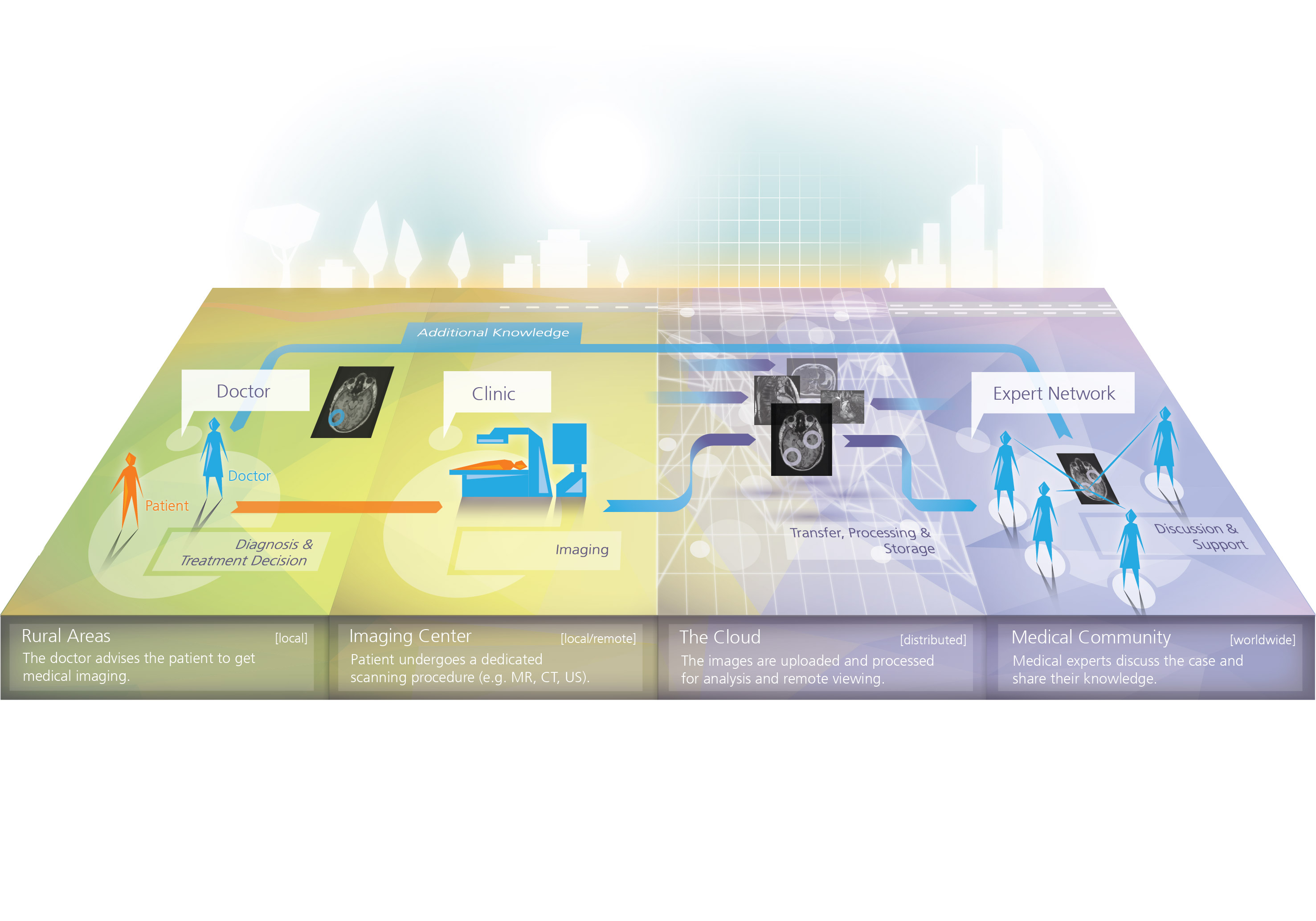Press Release

At the Global Social Business Summit in Berlin, Fraunhofer MEVIS will search for ways to employ telemedicine more effectively in the developing world.
Many people in the world still have no access to health care. One strategy to overcome the current situation is “social business”: socially oriented entrepreneurs provide products and services to benefit the poorest society groups. The Global Social Business Summit, the largest international forum for social business, will take place in Berlin between November 4 and 7. Finding new health care perspectives will be one item on the agenda. Fraunhofer Institute for Medical Image Computing MEVIS in Bremen will attend the event and search for potential partners for future social business cooperation.
Social business is an economic concept developed by Nobel Peace Prize Laureate Mohammad Yunus. Although they earn as much money as other companies, the goal of these enterprises is to achieve various social goals and not to maximize profit. “This model is compatible with the non-profit status of the Fraunhofer-Gesellschaft,” says Fraunhofer MEVIS Director Horst Hahn. “Social business has the potential to make early recognition of serious diseases available and affordable in countries with insufficient health care through telemedical processes.” Providing every person in the world with access to quality health care is one of the goals agreed upon at the United Nations World Summit on Sustainable Development in September.
For 20 years, Fraunhofer MEVIS has been developing image-guided assistance systems for the medical routine. Today, sophisticated methods can extract vast amount of information from medical image data, for example, for early cancer detection, and provide innovative software over the internet. Some of these methods can also be used for social business cooperation.
Fraunhofer MEVIS has also developed web-based software tools for the National Cohort (NAKO), Germany’s largest health study to date. “The methods used for the study can also be applied to distribute X-ray or ultrasound images over the internet for diagnosis by off-site doctors,” explains Hahn. In many countries, there is an acute shortage of physicians; in some regions, there are no experts who can read an X-ray image, but who have internet access and a web browser. A web-based solution can help enable remote image evaluation and second opinions.
Modern computer algorithms that automatically detect particular abnormalities in the image data could also be relevant. Fraunhofer MEVIS works in close cooperation with the Radboud University Medical Center in Nijmegen, home of one of the worldwide leading workgroups for automatic image evaluation. “These algorithms could recognize suspicions of tuberculosis on an X-ray image or abnormalities in the ultrasound of a pregnant patient,” explains Horst Hahn. “The algorithm would not give a complete diagnosis, only a suggestion to visit a clinic that can clarify the findings.” The benefit of such algorithms is that they could automatically pre-evaluate a vast amount of images, which is especially advantageous in regions without trained medical personnel.
MEVIS specialists operate in a well-established manner: “We can and want to develop such approaches in close cooperation with on-site organizations and doctors,” stresses Hahn. “The Global Social Business Summit in Berlin offers an excellent opportunity to start a conversation between entrepreneurs, institutions, and projects and discover how Fraunhofer MEVIS could contribute to the solution of urgent health problems in a country such as Bangladesh. This is our next milestone.”
The Global Social Business Summit is the worldwide leading forum for Social Business – a new and sustainable business model introduced by Nobel Peace Prize Laureate Prof. Muhammad Yunus based on his experience and success with the Grameen Bank. The Summit serves to spread awareness of social business, foster discussion and collaboration, as well as present and conceive best practices among companies, governments, entrepreneurs, civil society and academia to shape the future economic and social system. The seventh congress, where more than 1,000 participants from 60 countries are expected, will be held in Berlin between November 4 and 7.
 Fraunhofer Institute for Digital Medicine MEVIS
Fraunhofer Institute for Digital Medicine MEVIS